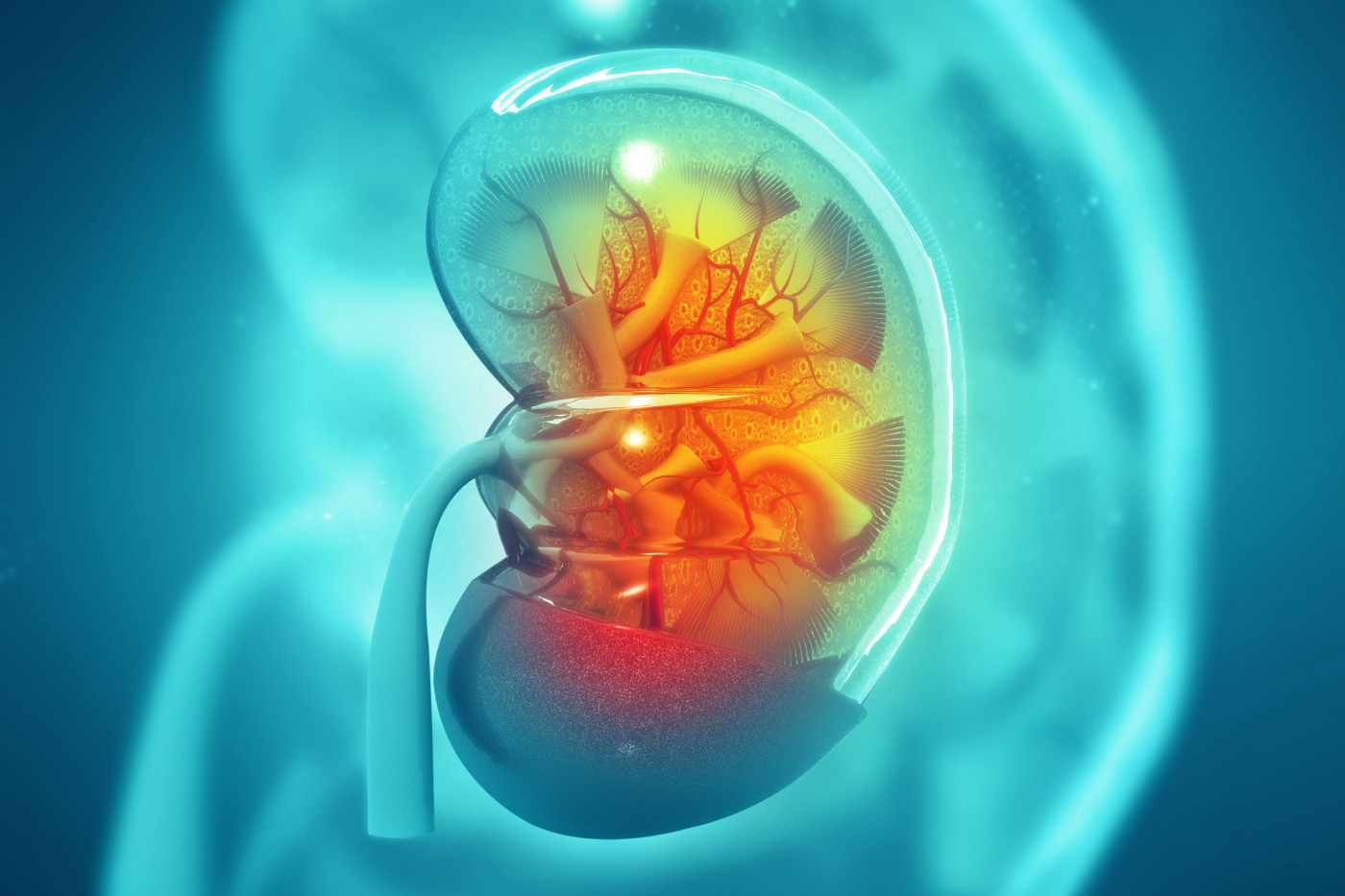COL4A5 Protein Measurements in Alport Patients’ Kidneys May Aid in Prognosis, Researchers Say

The extent of loss of the COL4A5 protein in the kidneys of Alport syndrome patients is linked to a more severe disease progression, researchers at the Mayo Clinic in Minnesota argue.
This feature, however, is not common in patients diagnosed with Alport in adulthood, according to the study, “Negative Staining for COL4A5 Correlates With Worse Prognosis and More Severe Ultrastructural Alterations in Males With Alport Syndrome.”
Staining kidney tissue with antibody-bound dyes for the various collagen proteins in the kidney is a method used to support the diagnosis of Alport syndrome. But even though Alport is caused by mutations in one of three COL4A genes, there is little insight into how the loss of the proteins relate to the structural kidney damage — and hence disease progression.
To find out, the research team recruited 25 male patients with an Alport diagnosis based on clinical findings and a family history of blood in the urine. At the time of kidney biopsy, 36 percent of the patients were children, with the remaining 64 percent being adults, with an average age of 29.
Results, published in the journal Kidney International Reports, demonstrated that 40 percent of the patients had a loss of COL4A5 protein. The patterns of loss differed between the patients, with some having lost the protein throughout the kidney and some with reductions in certain structures.
Interestingly, this loss was detected in 89 percent of children, but only 13 percent of the adults included in the study.
Patients with loss of COL4A5 protein had worse structural damage at the kidney basement membrane compared to those who had normal levels of the protein. They were also younger at the time of the tissue sampling, indicating that a loss of COL4A5 is linked to a more severe disease.
This idea was supported by analyses that showed that a loss of COL4A5 predicted the development of proteinuria — the inability of the kidneys to prevent blood proteins to enter the urine. Such a loss also predicted the progression to stage 2 or worse kidney disease.
This would indicate that patients with a larger loss of COL4A5 have a more severe underlying mutation, which negatively impacts the disease progression.







Leave a comment
Fill in the required fields to post. Your email address will not be published.